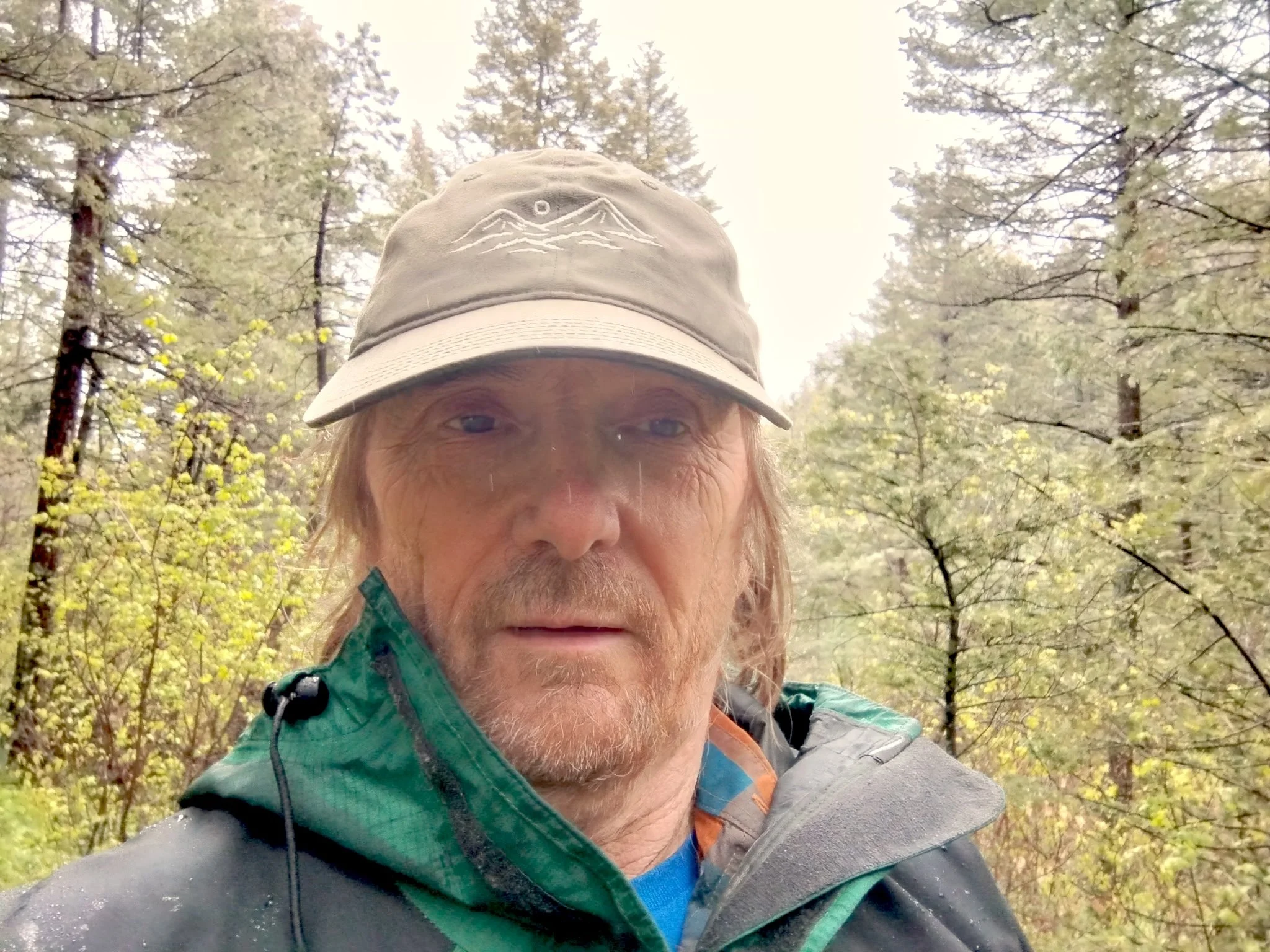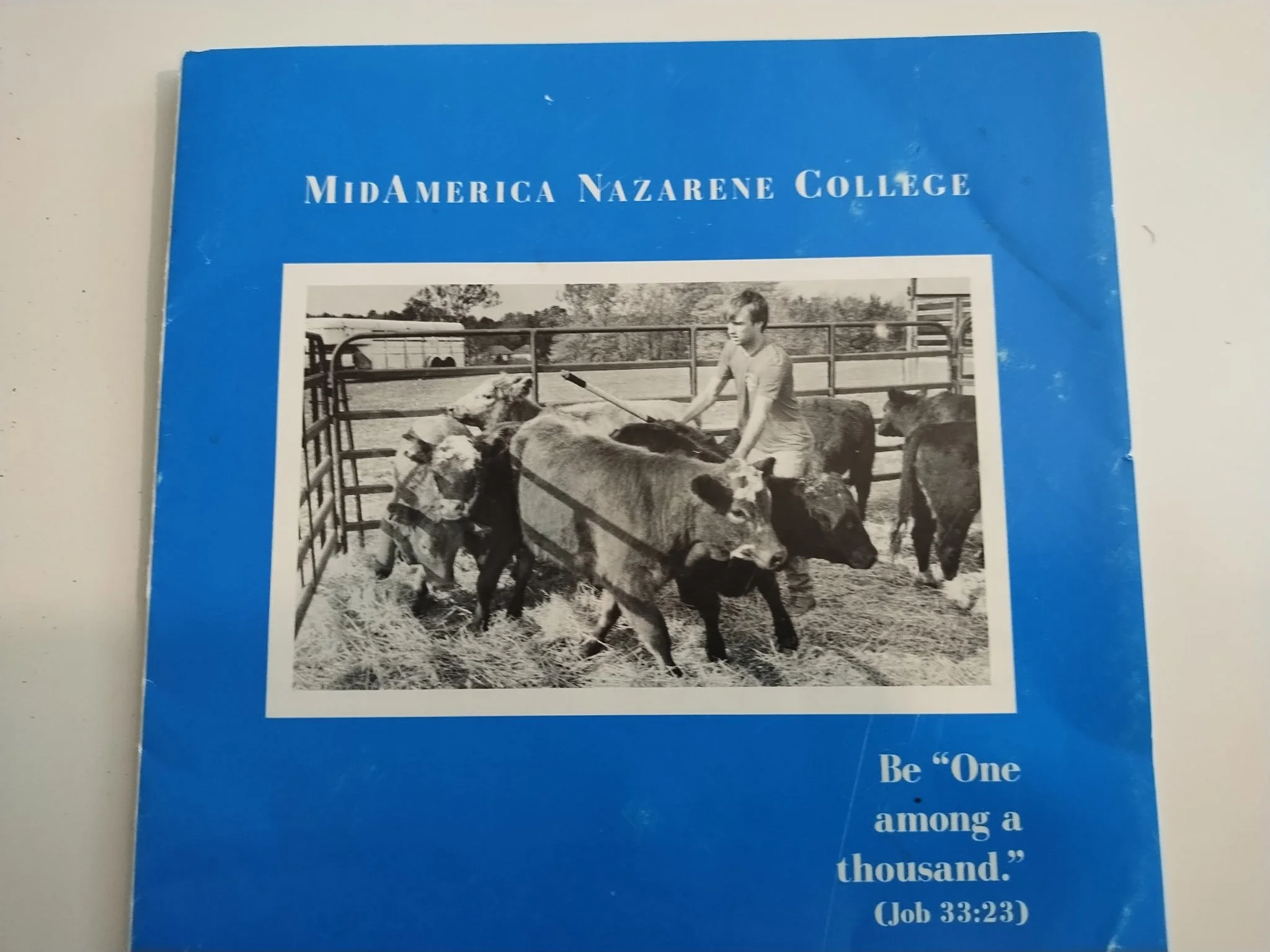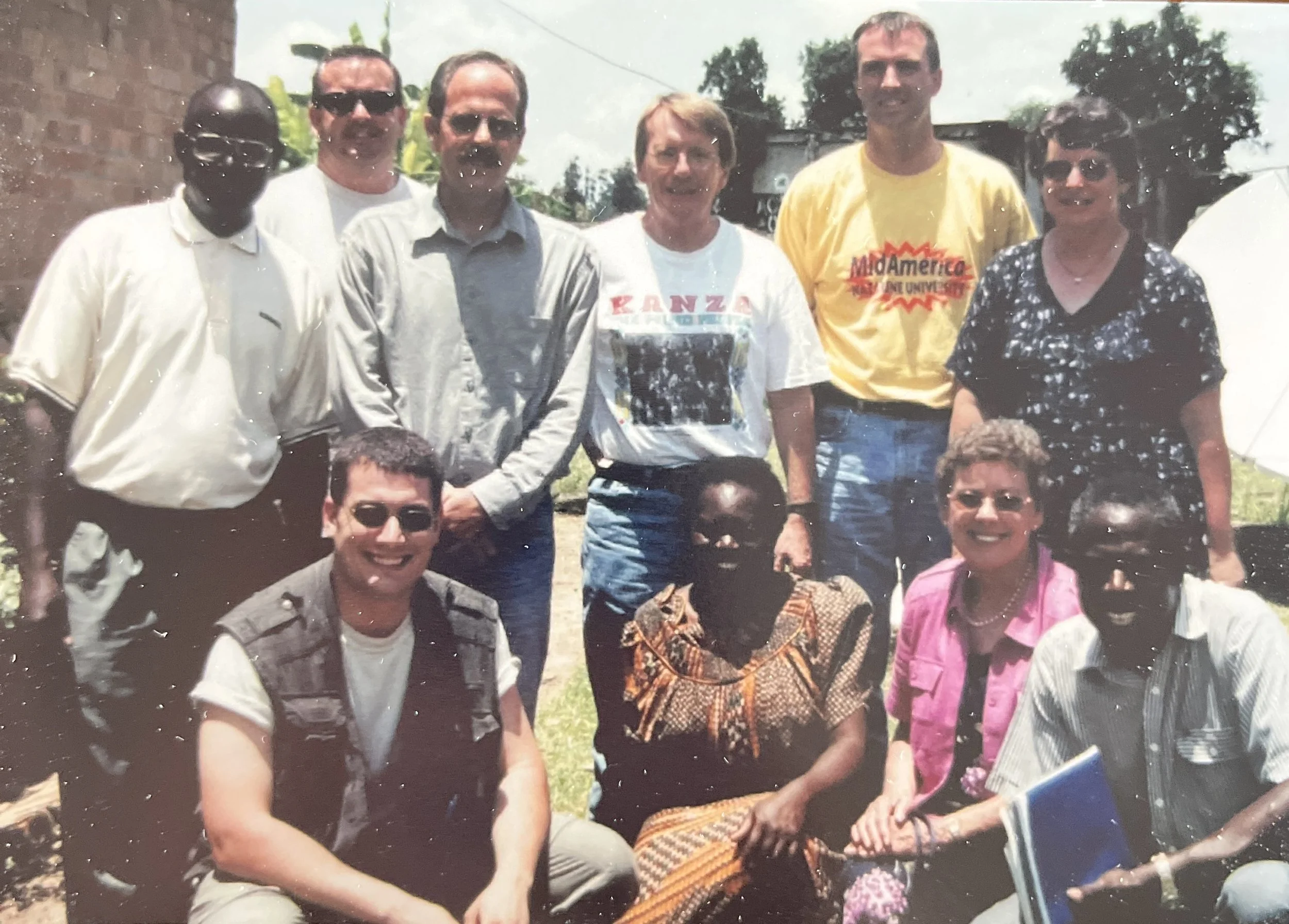“Pass Me That Torch”—Meet Legacy Ag Developer, Dr. Glenn Fell
Happy Farmer First!
On the first of the month, we like to share stories of farmers who’ve had an impact on the world, our team members, or the Kingdom in general. This month, we got on a call with AgG Board Chair, Kevin Stark, and his former ag professor, Dr. Glenn Fell to hear how they met and what it takes to keep this work going.
We call that process ‘Legacy,’ and we talk about it for the same reason we obsess over being a partnering organization.
Because Legacy isn’t just about inheritance, it’s about stewardship.
It’s about carrying a torch that someone else lit long before you, and keeping it burning for the next person in line.
Take 5 minutes to read this clear example of Legacy.
Pictured: Dr. Fell near his home in Colorado. Photo courtesy of Glenn Fell.
A Tragic Beginning
In the late-1980s, the agriculture program at MidAmerica Nazarene University in eastern Kansas faced a heartbreaking loss. Dr. Charles Morrow, the professor of agriculture who also ran the school’s training farm, was tragically killed in a plane crash while on a service trip to Central America.
His friend, Dr. Glenn Fell, remembers their final conversation:
“The last thing Charles said to me before leaving was, ‘Take care of the farm for me until I get back.’” Fell paused. “And he never got back, so I kept taking care of the farm for him.”
Dr. Fell had just returned from South Africa, where he’d served in faith-based ag development for the Church of the Nazarene. He was back in Kansas City, unsure of what to do next, when the university asked him to step into Dr. Morrow’s role. What began as a moment of tragedy became a continuation of legacy.
Learning by Doing
For the students like Kevin Stark who remained after Dr. Morrow’s death, it was a time of uncertainty.
“It was a wild situation and so sad,” Kevin remembers. “After he died, we just kept the class going on our own for a while. We wanted to honor what he started.”
When Dr. Fell arrived, he continued Dr. Morrow’s approach to practical, hands-on learning and real-world experience overseas.
“Eventually I learned that if I’m chasing a cow, something’s wrong,” Fell laughed. “You’ve got to work smarter, not harder.”
That lesson stuck with Kevin, especially one day when Fell pointed out a field of corn and said, “You see that corn? It’s just gonna sit there and grow. We don’t have to chase it, it won’t kick us, and it won’t poop on us. It just does its thing.”
Kevin chuckled, “That was it. I decided right then I was going to grow crops.”
Pictured: An old college journal featuring a young Kevin Stark in training on the cover. Photo courtesy of Glenn Fell.
From Classroom to Calling
If you know Kevin Stark, you know the man is traveling and doing international ag work a lot, but his first-ever international trip was with Dr. Fell to Zambia, and it left an impression that would shape the rest of his career.
“I remember exchanging money when we landed, and Dr. Fell didn’t change any,” Kevin says. “Then the whole trip, he kept asking, ‘Hey Kevin, got some money I could borrow?’ And every time, he’d give it away—to kids begging in the street, to people who had nothing. One day, we handed out our leftover lunches, and the kids started fighting over the scraps. It was devastating. I still remember it well.”
That moment revealed what both men had been teaching and living all along—that real development isn’t about charity; it’s about empowerment. Charity is often needed in the short-term, but too much charity and the dependency that creates is gut-wrenching.
”Training is the key,” Dr. Fell said.
Pictured: Dr. Fell with farmers in Malawi in the 90s. Photo courtesy of Glenn Fell.
Training for Transformation
“Training is critical,” Dr. Fell repeated. “Of course we want to alleviate poverty and develop food systems and help people, but the best way to do that is to train them—to help them do the work well themselves.”
He points to Jubilee Farms in Kenya as one of his favorite examples. The farm’s name comes from the Biblical Year of Jubilee, a time of freedom and restoration. The farm’s motto—‘Freedom from hunger, poverty, and oppression’—reflects the same vision that Charles Morrow lived out and that Fell and Kevin have carried forward.
“It’s wild to think,” Fell says, “but I’ve never actually been to Jubilee Farms. Yet I’ve been able to help that community tremendously through training and mentoring from afar. Why would I go over there and do the work? They’re doing it themselves.”
Passing the Torch
Today, Kevin scouts and coaches new efforts in agricultural development through AgGrandize, and he’s quick to credit those who came before him.
“It really warms my heart,” Dr. Fell said, “seeing students like Kevin pick up the torch. I took it from Charles all those years ago, and now Kevin and others are carrying it forward. We have to keep the work going—training people to embrace better farming methods themselves.”
That’s the essence of legacy. It’s not about one generation finishing the work—it’s about each generation carrying it forward. From Charles Morrow’s fields in Kansas to Jubilee Farms in Kenya, that torch keeps burning, lighting the way for the next generation of farmers.
Pictured: Dr. Fell (center, KANZA shirt) with Kevin Stark to his left (yellow shirt) on a trip to Zambia, Kevin’s first-ever trip overseas. Photo courtesy of Kevin Stark.




